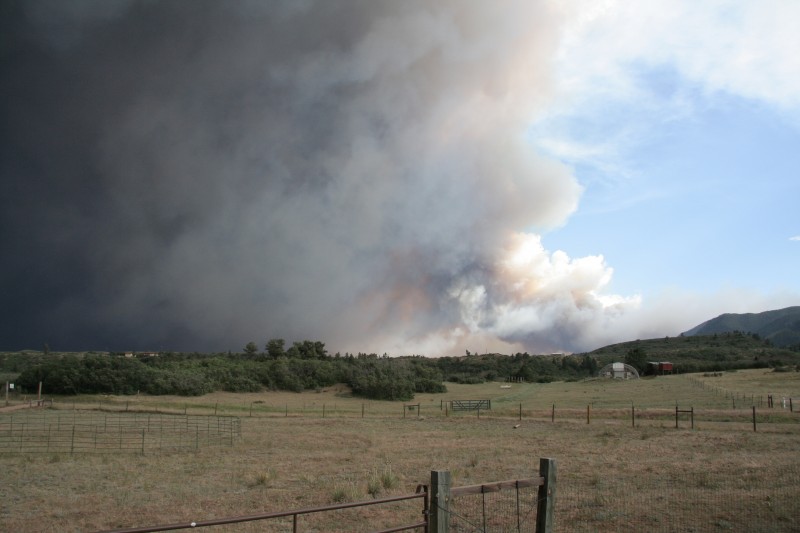If they are going to be labeling Genetically Modified food stuffs, and are concerned that the labels are going to scare people, why don’t they add “USDA Approved” to the label. ( I certainly hope the USDA is approving the basic foods in our grocery stores.) That should get rid of the GMO scare for folks that don’t know what GMO is all about and still contain the alert for those that are concerned about GMO.
Category Archives: General
Waldo Canyon Fire
Give Credit Where Credit is Due.
Pony Service Announcement! by ~Nimaru on deviantART.
How difficult is it to link back to the source?
Olympics 2012: branding ‘police’ to protect sponsors’ exclusive rights
Olympics 2012: branding ‘police’ to protect sponsors’ exclusive rights | Sport | The Guardian.
I think the best way to protect the brand of the Olympics is to just ignore them. Someone tell me September if anything interesting happened.
Colorado National Parks- List View
Free entry to national parks starting Saturday
Free entry to national parks starting Saturday | national, park, free – Colorado Springs Gazette, CO.
This sounds interesting. And I think we are expecting reasonable weather next week.
The real criminals in the Tarek Mehanna case
The real criminals in the Tarek Mehanna case – Salon.com.
A very good Sentencing Statement. It should not surprise us that we Americans forget the ideals that founded our country and that we have become what we revolted against over 200 years ago. It seems to happen to most nations.
Debt History
I have been reading David Graeber’s Debt: the first 5,000 years and find it very interesting. The initial question posed is “Surely one has to pay one’s debts.” And from there Graeber looks back 5,000 years from an anthropologist’s point of view at debt, credit, money and economies.
I learned many variations on ‘accepted truths’ . Economists like to start the history of economics with the early human societies developing barter, then money, then credit. Adam Smith in Wealth of Nations started this paradigm and it has been repeated by the following generations. This is used to establish a ‘natural order’ of economics. Yet, the anthropologist finds that early societies built their economies on a credit based exchange of commodities. Before credit it may have been favor based exchanges. And with credit comes debt and some manner of quantifying debt. It doesn’t have to be money; it may be tokens or tallies or other symbolic measures.
Eventually money, coinage, is developed – apparently simultaneously in Greece, India and China. Not only are states able to demand their taxes in coin, they can use the coin to pay their armies rather than provision them with commodities out of their treasuries. This puts the coinage into the general population which lets them pay their taxes.
The philosophers start discussing the abstracts concept of symbols and reality, since money isn’t really real, virtual materialism.
Religions grow and start to collect and hoard the coins and start preaching different concepts of sin and debt and obligation and guilt. Somehow they are all tied together. Different religions approach debt in different ways. Do you owe a debt to your forebears for being there? Do you owe a debt to your parents or your community just for being there? Do you owe a debt incurred by your parents? Unto how many generations?
There are discussions of human economies and commercial economies. Contrast the unique value of an individual with the anonymous value of a hunk of metal.
There is some exploration of the nature of the relationship between debtor and creditor. As long as is debt one can not be equal to the creditor. Even more interesting is the situation where a debt paid in full implies the two are equal and that just will not do. Then societal rules can be stretched, twisted and strained to prevent the equality from happening.
One item I found interesting was the relationship of the Chinese need for silver – to keep its coinage system working since they didn’t want to use paper money – to the European invasion of the Americas. And there is the oft-repeated theme of armies enslaving people to work in the mines to get the mineral wealth to pay the armies. Seems to have happened quite a bit once they decided to start paying armies in coin.
A market involves using money to go from one commodity to another. Money is just an intermediary. With capitalism, money is used to make money. Money makes money through interest and debt. This is an ever spiraling growth of that will collapse on itself and probably take society with it. Graeber’s discussion of the last 40 years is very interesting and gives me pause as to what we might experience over the next 30-40 years. Given 5,000 years of history bearing down on us, I don’t think we can be agile enough to avoid a heavy shock.
Graeber shows that throughout history, human societies rebel against onerous debt. They have a Grand Jubilee and reset the meter. I don’t know if I want to see it happen or not.
I highly recommend Debt: the first 5,000 years for a thoughtful read.
▶ Yosemite
Colorado Sees Worst Snow Drought Since Early 1980s, Foreshadowing Water Shortages And Potential Wildfires | ThinkProgress
Looks like we are in for a fun summer! or is that looking too far ahead?

